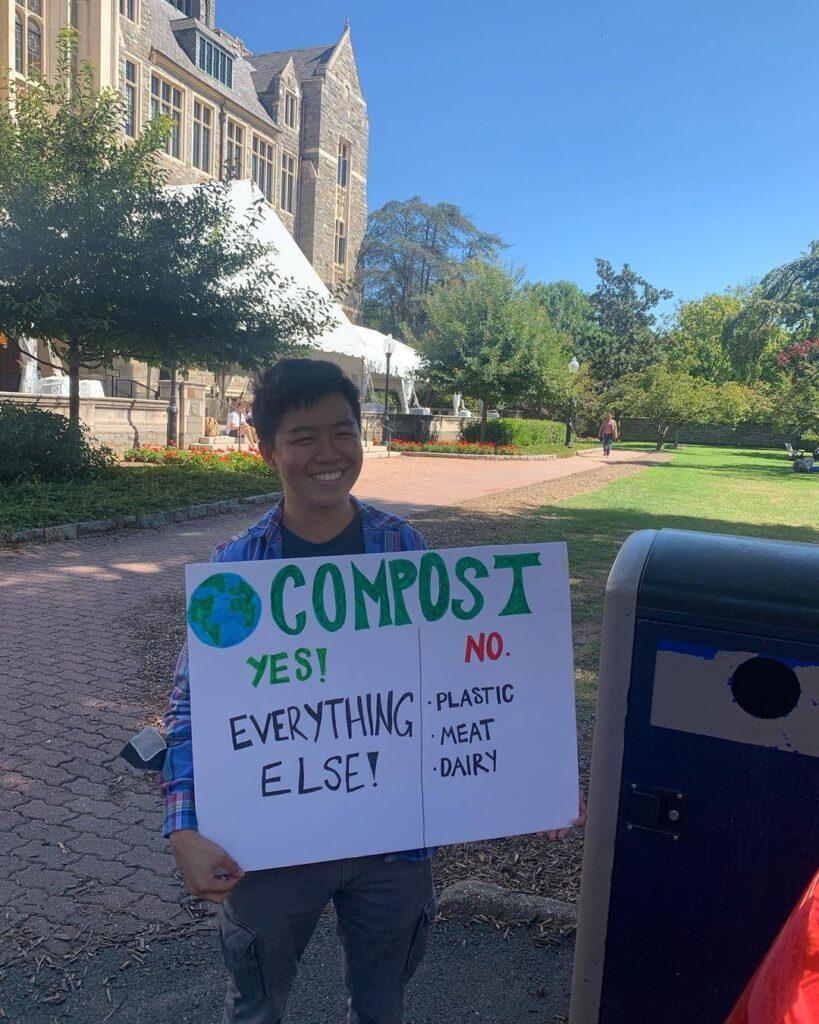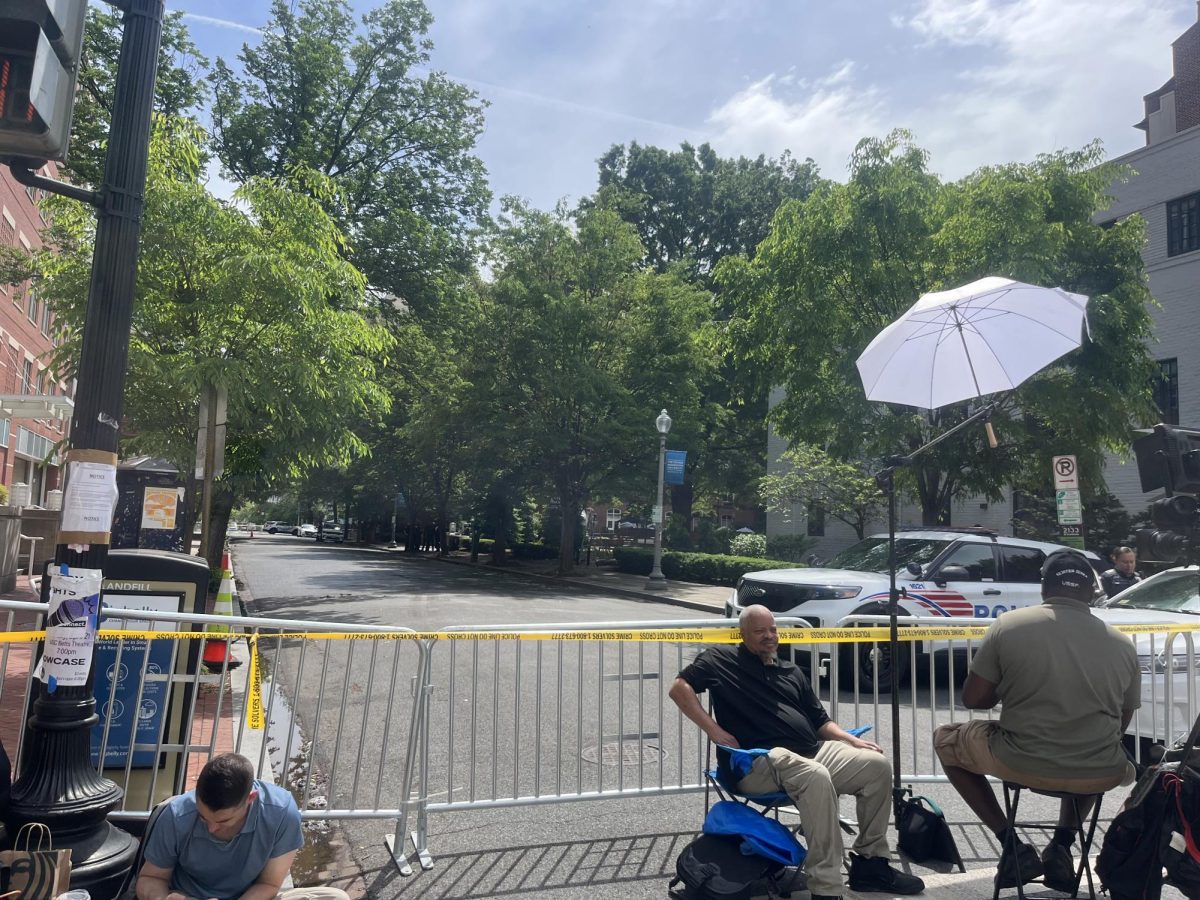Amid the vendors selling wood-fired pizzas and flavor-stuffed empanadas at the Georgetown University Farmers Market (GUFM) sits a composting station where students can discard food waste as an effort to create a more environmentally friendly campus.
The composting bins, organized by GUFM in collaboration with the Georgetown Renewable Energy and Environmental Network (GREEN), are located in the middle of Red Square during the market every Wednesday afternoon until it closes for the winter. In addition to helping students reduce waste, the initiative aims to educate students on the importance of composting efforts.
GUFM Director Francesca Donovan (COL ’23) said the aim of the initiative is to expand the amount of waste that can be collected as more students learn that the composting bins are available.
“We are working to bring even more compost, because at this point we are constrained to three bins and we definitely want more,” Donovan said to The Hoya. “So far we have had a couple students bring their compost from the last week and drop it off, which is the goal here.”
Compost Cab, a local Washington, D.C. environmental organization that aids in composting efforts, picks up the compost from GUFM each week. In addition to GUFM, composting is available at the Dupont Farmers Market and Eastern Market Farmers Market in D.C.
Nadia Sadanandan (NHS ’24), one of the leads for the GREEN’s Zero Waste Team, which is helping to organize the composting initiative, said educating students on how to compost is important for reducing waste on campus.
“The other thing we need to help students with is teaching them how to compost in their dorms and that they can actually store food waste and food scraps in their freezer in a ziplock bag and bring it to the market every Wednesday to drop off,” Sadanandan said to The Hoya.
Avery Kaye (COL ’24) said composting in college helps her to reduce her impact on the environment and to continue with sustainable practices that she grew up doing.
“I composted at my high school, and I still make an effort to compost today when possible,” Kaye said to The Hoya. “It’s nice to be able to go to the farmers market and have the opportunity to compost there and try to be as sustainable as possible while in college.”
Through the D.C. Department of Public Works’ Home Composting Program, District residents are able to earn a maximum rebate of $75 on a home composting system. The program is intended to encourage D.C. residents to take steps at home to compost and reduce their environmental footprint.
While on campus, programs such as GUFM’s compost initiative allow college students to contribute to composting efforts and environmental sustainability in the District.

Common items that can be composted include fruits and vegetables, crushed eggshells, coffee grounds and tea bags. Meat and dairy products cannot be composted at GUFM as they may cause odors and attract insects.
GREEN volunteers will be present at GUFM to answer questions about composting and ensure that students are composting the correct items, Sadanandan said.
Composting is environmentally beneficial as it reduces an individual’s carbon footprint, decreases the reliance on chemical fertilizers, improves soil quality and reduces landfill emissions.
Sadanandan said the ultimate goal is to expand to other campus locations so that students have a place to dispose of their compostable materials any day of the week.
Donovan said composting is just one step toward creating a more sustainable and environmentally friendly GUFM.
“We’re also aiming to shift our vendors to more sustainable packaging so that we can be a fully compostable market,” Donovan said.




















